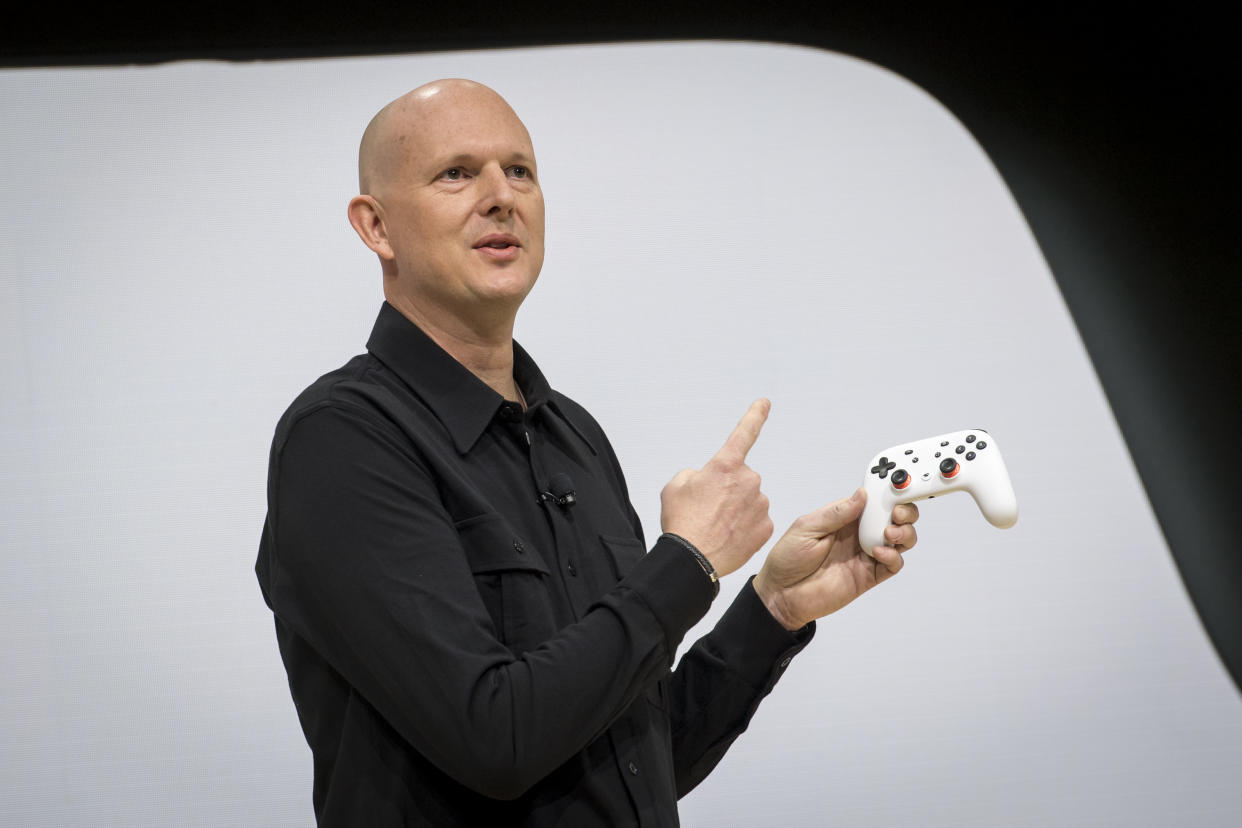4 unanswered questions about Google's Stadia game streaming service

Google (GOOG, GOOGL) on Tuesday unveiled Stadia, its vision for the future of gaming.
Unlike many traditional gaming platforms, which require a powerful PC or dedicated console, Stadia streams games from Google’s data servers around the world to people’s computers, tablets, and smartphones. Players can also start playing on one of their devices and quickly resume on another device — a convenient feature for many consumers who tote around multiple gadgets.
But the Mountain View, California-based tech giant, which now has the full attention of gamers and press, also left several big questions about Stadia unanswered, pointed out Piper Jaffray analysts Michael J. Olson and Yung Kim in a note published Tuesday.
How much?
Google didn’t specify how much Stadia will cost when it launches sometime later this year or how the payment model would work exactly. Current game streaming services such as PlayStation Now, which lets PlayStation owners play select PlayStation 3 and PlayStation 4 titles, charge $19.99 a month and $99.99 a year for them to play as many of those titles as they want as frequently as they want.
But Stadia is a different beast, with Google positioning its streaming platform as a cutting-edge rival to more traditional PC and console gaming. (Indeed, Google Vice President Phil Harrison made pointed comparisons between Stadia’s technical prowess and the less advanced technical capabilities of Sony’s PlayStation 4 and Microsoft’s Xbox One X.) And Piper Jaffray cautions Google about giving Stadia a PlayStation Now a Netflix-like buffet-like pricing scheme.
“We believe game publishers may resist an all-you-can-play model, similar to video services such as Netflix,” Olson and Kim wrote in the note.
How do games actually play?
While Google showed brief snippets of different games, the company did not allow the press to have any hands-on time with the software. (They were able to handle Google’s newly announced controller, however.)
“Additionally, one of our larger remaining questions centers on multiplayer functionality,” pointed out Olson and Kim. “Multiplayer was discussed at length during the presentation, but the presentation lacked an actual display of this.”
Google may either hold another event later this year before Stadia’s launch to give reporters hands-on time, or worse, keep that part of Stadia under lock and key until launch time for press and gamers to review and discover on their own. That’s hardly ideal for a company that must shore up as much excitement as possible for its experimental new game streaming platform. After all, just because it’s a Google device or service doesn’t mean it’s destined to succeed. (We’re looking at you, Google+.)
Which games will be available at launch?
A game platform’s launch lives and dies based on the games that arrive alongside it, and that’s where Google was really light on details. The company did tease out three games, including “Doom Eternal,” another fast-paced shooter from developer Bethesda Softworks, Ubisoft’s “Assassin’s Creed Odyssey,” first released last October on other platforms, and an unknown title from Q-Games. But beyond that, Piper Jaffray noted that none of the major third-party publishers, with the exception of Ubisoft, were featured during Google’s presentation on Wednesday. That’s not to say the support isn’t there, but if it was, Google should have made a bigger deal of it.
As Yahoo Finance’s Dan Howley pointed out on Tuesday, Google did announce a game studio of its own called Stadia Games and Entertainment, which Ubisoft Toronto founder Jade Raymond will run. That’s certainly a plus, because Stadia will need a lot of unique, original games to convince enough gamers the platform is worth paying for.
How’s that lag?
Stadia is hardly the first game streaming platform to come along, and it certainly won’t be the last. Equally as important as third-party software support is “latency:” the delay between a player’s button presses on a controller, mouse, or keyboard and when it registers onscreen.
“We believe the majority of console & PC style games will be streamed, with processing done in the cloud and the gamer only required to have some form of internet consumption device (and a controller),” Olson and Kim wrote, adding that they expect latency issues to be resolved within the next 10 years. “In the meantime, we expect full game download to be an intermediate step, while streaming gains traction. We anticipate multiple streaming platform providers will arise, along with limited direct distribution from some publishers.”
Those are words Google likely doesn’t want to hear, but whether Stadia has the chops and third-party support to prove otherwise remains to be seen.
More from JP:


